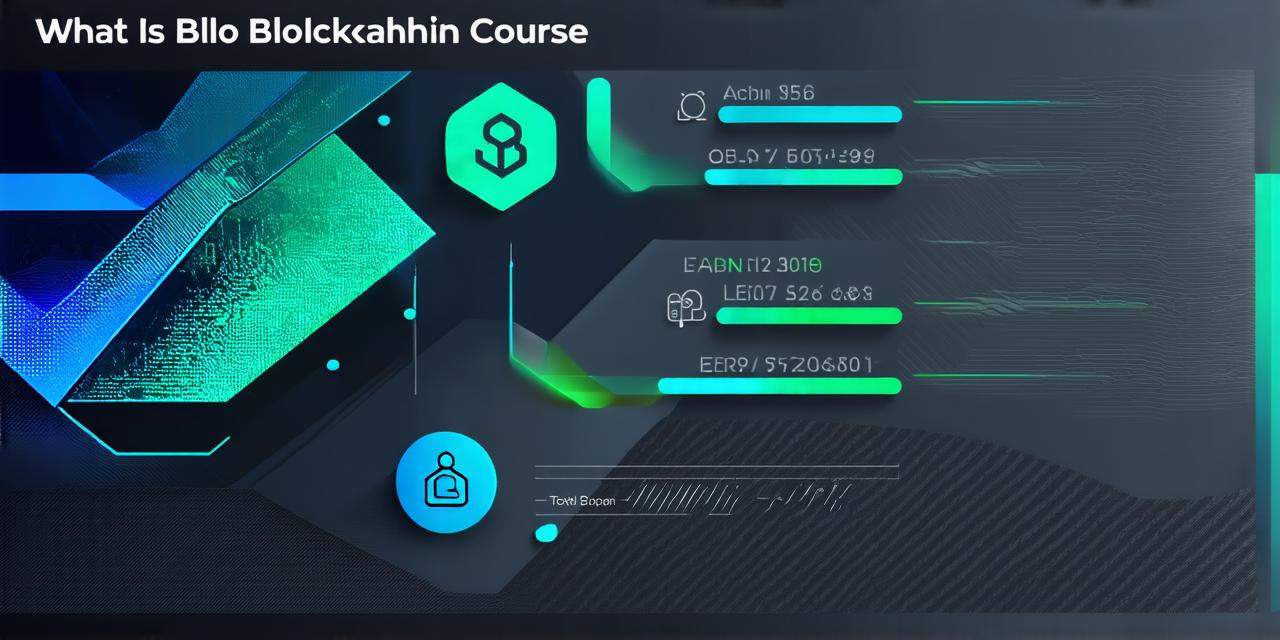Blockchain technology has revolutionized the way we store and transfer data. It’s a decentralized, secure, and transparent system that allows for faster and more efficient transactions. In this article, we will explore what a blockchain course is and why it’s important for anyone interested in working with this cutting-edge technology.
Understanding Blockchain Technology
Before diving into what a blockchain course is, it’s important to understand the basics of blockchain technology. A blockchain is essentially a digital ledger that records transactions in a decentralized and secure way. It consists of blocks of information that are linked together using cryptographic algorithms, making it nearly impossible for anyone to alter or delete data once it has been recorded.
What is a Blockchain Course?
A blockchain course is a type of training program that teaches students the ins and outs of blockchain technology. These courses can range from beginner-level introductions to advanced topics such as smart contracts, consensus algorithms, and cryptocurrency development.
The goal of a blockchain course is to provide students with the knowledge and skills they need to work effectively with this technology. Depending on the level of the course, students may learn how to build their own blockchain applications or simply gain an understanding of how the technology works.
Why Take a Blockchain Course?
Taking a blockchain course can provide numerous benefits for anyone interested in working with this cutting-edge technology. These benefits include:
- Improved job opportunities: With the growing demand for blockchain professionals, taking a course can help you stand out in the job market and increase your chances of landing a high-paying job.
- Increased earning potential: Blockchain professionals are among the highest paid in the tech industry, with salaries often exceeding $100,000 per year.
- Enhanced problem-solving skills: Learning about blockchain technology requires a deep understanding of complex systems and algorithms. This can help improve your overall problem-solving skills and make you a more valuable asset to any organization.
- Networking opportunities: Taking a blockchain course can provide opportunities to network with other professionals in the industry and learn from their experiences.
- Stay ahead of the curve: Blockchain technology is rapidly evolving, and staying up-to-date with the latest developments is essential for anyone interested in working with it.
Case Studies and Personal Experiences
One of the best ways to understand the value of a blockchain course is by looking at real-life examples. Here are a few case studies and personal experiences that illustrate the benefits of this type of training:
- Deloitte’s Blockchain Academy: Deloitte is one of the largest professional services firms in the world, and their Blockchain Academy is a testament to the growing demand for blockchain professionals. The academy offers a range of courses and certifications that can help students gain the skills they need to work with this technology.
- IBM’s Blockchain Developer Certification: IBM is another industry leader that has developed a certification program for blockchain developers. This certification requires candidates to pass a series of tests and demonstrations, and it can help them stand out in the job market.
- Personal experience: I took a blockchain course a few years ago, and it was one of the most challenging and rewarding experiences of my career. The course covered everything from the basics of blockchain technology to advanced topics such as smart contracts and cryptocurrency development. It gave me the skills I needed to work effectively with this technology and opened up new job opportunities for me.

FAQs
Q: Do I need a degree in computer science to take a blockchain course?
A: No, while a background in computer science can be helpful, it’s not necessary to take a blockchain course. Many courses are designed for people with little or no prior experience in the field.
